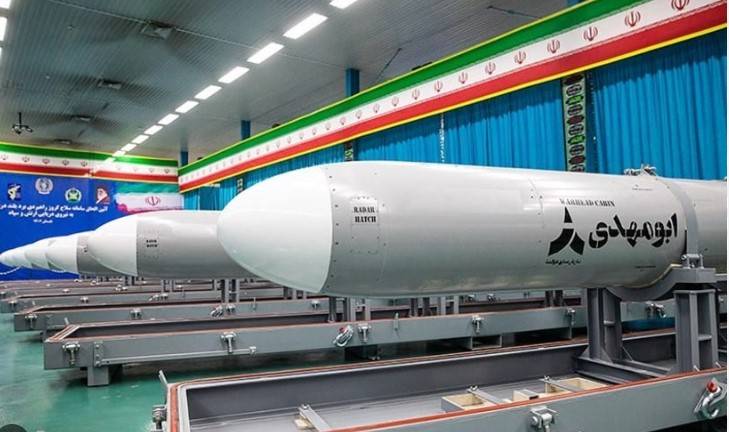Iran deploys AI-equipped missiles during drills in Gulf

Stay tuned with 24 News HD Android App

Iran's Revolutionary Guards have deployed missiles featuring artificial intelligence technology during military drills in the Gulf, state media reported Monday.
The Guards' naval force "fired Ghaem and Almas missiles equipped with artificial intelligence from advanced Mohajer-6 and Ababil-5 drones", the IRNA state news agency said.
The report added that the missiles "successfully destroyed hypothetical enemy targets" during the drills.
Ghaem and Almas are both precision-guided missiles developed domestically by the Iranian defence ministry.
On Friday, the Guards launched a series of military exercises in the southwest of the country, including in Bushehr and Khuzestan provinces, and in Gulf waters.
The provinces are home to Iran's major oil and petrochemical facilities, with Bushehr also hosting the country's nuclear power plant.
Citing the "sensitive positions", Guards naval commander Alireza Tangsiri told IRNA that the exercises simulated protecting these locations.
Tangsiri also said that Iran was producing cruise missiles with ranges "exceeding 1,000 kilometres (621 miles) that are utilised with AI technology".
The deployment of the missiles comes months after remarks from Iran's supreme leader, Ayatollah Khamenei, urging the authorities to "master artificial intelligence".
Since its 1979 revolution, the Islamic republic has developed a series of sophisticated missiles and drones following its break in ties with the United States, which had been Tehran's main arms supplier.
The test of the missiles also comes days after the inauguration of US President Donald Trump, known for a "maximum pressure" approach towards Iran during his first term, which ended in 2021.
Trump said Thursday that he hoped to avoid strikes against Iranian nuclear sites, calling for a "deal" with Tehran, the sworn enemy of the US and its ally, Israel.
‘No contact’ with US since Trump's return
Iran and the United States have not exchanged any messages since the return of Donald Trump to the White House, a senior Iranian diplomat said Monday.
"It has only been a few days since the new American administration took office and no messages have been exchanged," Iranian Deputy Foreign Minister Majid Takht-Ravanchi told the local ISNA news agency.
During his first term, Trump pursued a policy of "maximum pressure", withdrawing the United States from a landmark nuclear deal which imposed curbs on Iran's nuclear programme in return for sanctions relief.
Tehran adhered to the deal until Washington's withdrawal, but then began rolling back its commitments. Efforts to revive the 2015 nuclear pact have since faltered.
"We have to plan calmly and patiently. When the policies of the other side (Trump) are announced, we act accordingly," said Takht-Ravanchi.
On Thursday, Trump said he hoped to avoid military strikes on Iran's nuclear facilities, hoping for an "agreement".
Iran has repeatedly expressed willingness to revive the deal, and President Masoud Pezeshkian, who took office in July, has called for an end his country's isolation.
Earlier this month, before Trump officially returned to the White House, Iranian officials held nuclear talks with counterparts from Britain, France and Germany.
Both sides described the talks as "frank and constructive".
Takht-Ravanchi said that it was the third round of talks after two earlier rounds one in Geneva and another in New York last year.
He expected another round of talks to be held "within a month" but said the "date has not been confirmed yet."
